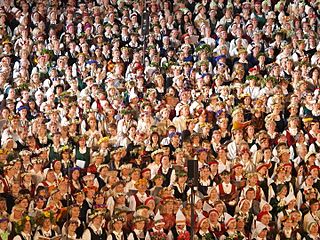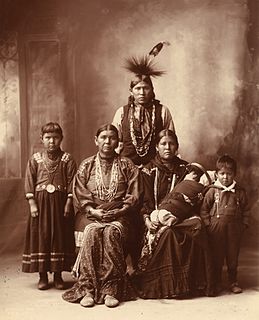Related Research Articles

Confucius was a Chinese philosopher and politician of the Spring and Autumn period who is traditionally considered the paragon of Chinese sages. Confucius's teachings and philosophy underpin East Asian culture and society, remaining influential across China and East Asia to this day.

Fellatio is an oral sex act involving a person stimulating the penis of another person by using the mouth, throat, or both. Oral stimulation of the scrotum may also be termed fellatio, or colloquially as teabagging. If fellatio is performed on oneself, the act is called autofellatio.

This article is about the demographic features of the population of Gibraltar, including ethnicity, education level, health of the populace, economic status, religious affiliations and other aspects of the population.

Digital media refers to any communication media that operate in conjunction with various encoded machine-readable data formats. Digital media can be created, viewed, distributed, modified, listened to, and preserved on a digital electronics device. Digital defines as any data represented by a series of digits, and media refers to methods of broadcasting or communicating this information. Together, digital media refers to mediums of digitized information broadcast through a screen and/or a speaker. This also includes text, audio, video, and graphics that are transmitted over the internet for viewing or listening to on the internet.

A natural disaster is "the negative impact following an actual occurrence of natural hazard in the event that it significantly harms a community". A natural disaster can cause loss of life or damage property, and typically leaves some economic damage in its wake. The severity of the damage depends on the affected population's resilience and on the infrastructure available. Examples of natural hazards include: avalanche, coastal flooding, cold wave, drought, earthquake, hail, heat wave, hurricane, ice storm, landslide, lightning, riverine flooding, strong wind, tornado, tsunami, volcanic activity, wildfire, winter weather.

Iran's population increased dramatically during the later half of the 20th century, reaching about 80 million by 2016. As of 2021, Iran's population is around 85 million. In recent years, however, Iran's birth rate has dropped significantly. Studies project that Iran's rate of population growth will continue to slow until it stabilizes above 100 million by 2050. Half of Iran's population was under 35 years old in 2012.

An ethnic group or an ethnicity is a grouping of people who identify with each other on the basis of shared attributes that distinguish them from other groups. Those attributes can include common sets of traditions, ancestry, language, history, society, culture, nation, religion, or social treatment within their residing area. Ethnicity is sometimes used interchangeably with the term nation, particularly in cases of ethnic nationalism, and is separate from the related concept of races.

Old age refers to ages nearing or surpassing the life expectancy of human beings, and is thus the end of the human life cycle. Terms and euphemisms for people at this age include old people, the elderly, OAPs, seniors, senior citizens, older adults, and the elders.
Irreligion or nonreligion is the absence or rejection of religion, or indifference to it. Irreligion takes many forms, ranging from the casual and unaware to full-fledged philosophies such as atheism and agnosticism, secular humanism and antitheism. Social scientists tend to define irreligion as a purely naturalist worldview that excludes a belief in anything supernatural. The broadest and loosest definition, serving as an upper limit, is the lack of religious identification, though many non-identifiers express metaphysical and even religious beliefs. The narrowest and strictest is subscribing to positive atheism.
China is one of the charter members of the United Nations and is one of five permanent members of its Security Council.

Latvians are a Baltic ethnic group and nation native to Latvia and the immediate geographical region, the Baltics. They are occasionally also referred to as Letts, especially in older bibliography. Latvians share a common Latvian language, culture and history.
Latin Americans are the citizens of Latin American countries. Latin American countries and their diasporas are multi-ethnic and multi-racial. Latin Americans are a pan-ethnicity consisting of people of different ethnic and national backgrounds. As a result, some Latin Americans do not take their nationality as an ethnicity, but identify themselves with a combination of their nationality, ethnicity and their ancestral origins. Aside from the Indigenous Amerindian population, all Latin Americans have some Old World ancestors who arrived since 1492. Latin America has the largest diasporas of Spaniards, Portuguese, Africans, Italians, Lebanese and Japanese in the world. The region also has large German, French, Palestinian, Chinese and Jewish diasporas.
The United Kingdom is an ethnically diverse society. The largest ethnic group in the United Kingdom is White British, followed by Asian British. Ethnicity in the United Kingdom is formally recorded at the national level through a census. The 2011 United Kingdom census recorded a reduced share of White British people in the United Kingdom from the previous 2001 United Kingdom census. Factors that are contributing to the growth of minority populations are varied in nature, including differing birth rates and Immigration.
Religion in Iraq dates back to Ancient Mesopotamia, particularly Sumer, Akkad, Assyria and Babylonia between circa 3500 BC and 400 AD, after which they largely gave way to Syriac Christianity and later to Islam.
Sexual abuse or sex abuse, also referred to as molestation, is abusive sexual behavior by one person upon another. It is often perpetrated using force or by taking advantage of another. Molestation often refers to an instance of sexual assault against a small child, whereas sexual abuse is a term used for a persistent pattern of sexual assaults. The offender is referred to as a sexual abuser or molester. The term also covers behavior by an adult or older adolescent towards a child to stimulate any of the involved sexually. The use of a child, or other individuals younger than the age of consent, for sexual stimulation is referred to as child sexual abuse or statutory rape. Live streaming sexual abuse involves trafficking and coerced sexual acts and or rape in real time on webcam.

Family is a group of people related either by consanguinity or affinity. The purpose of the family is to maintain the well-being of its members and of society. Ideally, families offer predictability, structure, and safety as members mature and learn to participate in the community. Historically, most human societies use family as the primary locus of attachment, nurturance, and socialization.

A transgender person is someone who has a gender identity or gender expression that does not correspond with their sex assigned at birth. Many experience dysphoria from this incongruence, and seek to alleviate it through transitioning, often adopting a different name and set of pronouns in the process. Additionally, some undergo sex reassignment therapies such as hormone therapy and sex reassignment surgery to more closely align their primary and secondary sex characteristics with their gender identity, though not all desire these treatments, and others cannot access them for financial or medical reasons. Those who do desire to medically transition to another sex may identify as transsexual.
Chinese people in Kyrgyzstan have been growing in numbers since the late 1980s. 2008 police statistics showed 60,000 Chinese nationals living in the country. However, the 2009 census showed just 1,813 people who declared themselves to be of Chinese ethnicity.

A trans woman is a woman who was assigned male at birth. Trans women have a female gender identity, may experience gender dysphoria, and may transition; this process commonly includes hormone replacement therapy and sometimes sex reassignment surgery, which can bring relief and resolve feelings of gender dysphoria. Like cisgender women, trans women may have any sexual orientation.

Overseas Indians, officially collectively known as Non-Resident Indians (NRIs) and Overseas Citizens of India (OCIs), where Non-Resident Indians are Indian citizens who are not residents of India and Overseas Citizen of India are people of Indian birth or ancestry who live outside and also are not the citizens of Republic of India. According to a Ministry of External Affairs report, there are 32 million NRIs and OCIs residing outside India and overseas Indians comprise the world's largest overseas diaspora. Every year 2.5 million Indians migrate overseas, which is the highest annual number of migrants in the world.
References
- ↑ "Medscape.com". Archived from the original on January 1, 2004. Retrieved 2009-04-10.
- ↑ "Evaluation and Management Services Guide" (PDF). www.cms.gov. December 2010. Archived from the original (PDF) on 2012-04-11. Retrieved 2011-02-27.